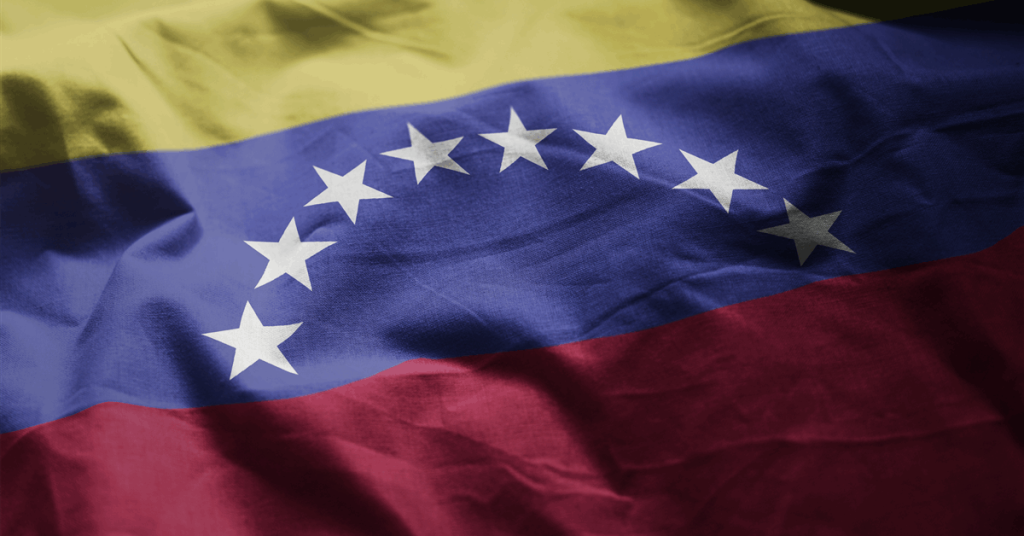Venezuela revoked energy deals with neighboring Trinidad and Tobago for its support of a US military offensive in the Caribbean, potentially raising the economic cost of the twin-island nation’s alliance with the Trump administration.
Speaking on state television Monday evening, President Nicolás Maduro revoked an energy framework agreement with Trinidad that allowed the two countries to forge gas deals. Venezuelan Vice President and Oil Minister Delcy Rodríguez had made the proposal earlier on Monday.
“Faced with the Prime Minister’s threat to turn Trinidad into the aircraft carrier of the US empire against Venezuela, against South America, there is only one alternative,” Maduro said in his weekly program on state TV. “It is completely suspended.”
Maduro said he would deliver the proposal to the Supreme Court, National Assembly and State Council to receive their recommendations before taking “a structural measure” very soon.
Trinidad needs Venezuelan gas to replenish supply to the industrial backbone of its fragile economy. However, when Rodríguez first made the threat on Monday, Trinidad’s Prime Minister Kamla Persad-Bissessar told AFP that the country’s future “does not depend on Venezuela and never has.”
Trinidad’s government has developed a “hostile attitude” and a “warlike plan” against Venezuela, Rodríguez said during the afternoon, by “siding” with the US’s “military agenda.”
Persad-Bissessar has previously said she welcomed the US offensive on drug traffickers, calling for them to be killed “violently.”
Her posture has alienated Trinidad from other English-language countries in the Caribbean that have insisted on maintaining the region as a “zone of peace.”
Venezuelan rhetoric is escalating as the US advances a military campaign, blowing up purported drug boats and pointing a finger at Maduro and, increasingly, Colombian President Gustavo Petro for allegedly flooding the US with fentanyl and cocaine.
The US is ramping up its deployment in the southern Caribbean, with a guided missile destroyer docking in Trinidad on Sunday, according to CBS News.
The Trump administration recently granted Trinidad limited permission to import Venezuelan gas after it had canceled an earlier approval in April. The on-and-off-and-on-again waivers from US sanctions on Venezuela have shaken Trinidad, whose economy depends on exports of liquefied gas, petrochemicals and fertilizers.
Rodríguez’s latest broadside follows Venezuelan accusations over the weekend that Trinidad is involved in a “false flag” plot with the US to stage an attack on Trinidadian soil.
Maduro later said that over the weekend, his government had arrested a group of mercenaries, allegedly “trained and financed by the CIA,” that were intending to carry out a “self-attack” on the USS Gravely, which docked in Trinidad’s capital Sunday. He added that his government had provided all of the proof to Trinidad’s government, and that it had “taken notes,” but said Persad-Bissessar was acting as the US’ “enabler” in the region.
“The Petróleos de Venezuela board has decided to propose the immediate termination of the energy cooperation framework agreement between Venezuela and Trinidad, which was signed in 2015 for a 10-year term and renewed this year for another five years,” said Rodríguez, referring to Venezuela’s national oil company.
Since early September, US forces have disclosed attacks on 10 boats allegedly linked to drug trafficking, with at least 40 deaths.
To contact the editors responsible for this story:
Crayton Harrison at tharrison5@bloomberg.net
Jose Orozco
Generated by readers, the comments included herein do not reflect the views and opinions of Rigzone. All comments are subject to editorial review. Off-topic, inappropriate or insulting comments will be removed.
element
var scriptTag = document.createElement(‘script’);
scriptTag.src = url;
scriptTag.async = true;
scriptTag.onload = implementationCode;
scriptTag.onreadystatechange = implementationCode;
location.appendChild(scriptTag);
};
var div = document.getElementById(‘rigzonelogo’);
div.innerHTML += ” +
‘‘ +
”;
var initJobSearch = function () {
//console.log(“call back”);
}
var addMetaPixel = function () {
if (-1 > -1 || -1 > -1) {
/*Meta Pixel Code*/
!function(f,b,e,v,n,t,s)
{if(f.fbq)return;n=f.fbq=function(){n.callMethod?
n.callMethod.apply(n,arguments):n.queue.push(arguments)};
if(!f._fbq)f._fbq=n;n.push=n;n.loaded=!0;n.version=’2.0′;
n.queue=[];t=b.createElement(e);t.async=!0;
t.src=v;s=b.getElementsByTagName(e)[0];
s.parentNode.insertBefore(t,s)}(window, document,’script’,
‘https://connect.facebook.net/en_US/fbevents.js’);
fbq(‘init’, ‘1517407191885185’);
fbq(‘track’, ‘PageView’);
/*End Meta Pixel Code*/
} else if (0 > -1 && 85 > -1)
{
/*Meta Pixel Code*/
!function(f,b,e,v,n,t,s)
{if(f.fbq)return;n=f.fbq=function(){n.callMethod?
n.callMethod.apply(n,arguments):n.queue.push(arguments)};
if(!f._fbq)f._fbq=n;n.push=n;n.loaded=!0;n.version=’2.0′;
n.queue=[];t=b.createElement(e);t.async=!0;
t.src=v;s=b.getElementsByTagName(e)[0];
s.parentNode.insertBefore(t,s)}(window, document,’script’,
‘https://connect.facebook.net/en_US/fbevents.js’);
fbq(‘init’, ‘1517407191885185’);
fbq(‘track’, ‘PageView’);
/*End Meta Pixel Code*/
}
}
// function gtmFunctionForLayout()
// {
//loadJS(“https://www.googletagmanager.com/gtag/js?id=G-K6ZDLWV6VX”, initJobSearch, document.body);
//}
// window.onload = (e => {
// setTimeout(
// function () {
// document.addEventListener(“DOMContentLoaded”, function () {
// // Select all anchor elements with class ‘ui-tabs-anchor’
// const anchors = document.querySelectorAll(‘a .ui-tabs-anchor’);
// // Loop through each anchor and remove the role attribute if it is set to “presentation”
// anchors.forEach(anchor => {
// if (anchor.getAttribute(‘role’) === ‘presentation’) {
// anchor.removeAttribute(‘role’);
// }
// });
// });
// }
// , 200);
//});

